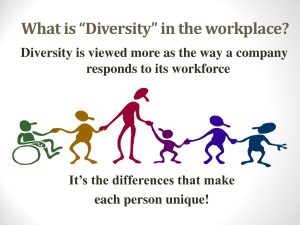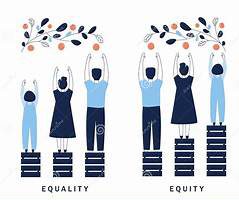Keywords: diversity in the workplace, inclusion initiatives, social justice, cultural competence, equality and fairness.
In today’s workplace, diversity, equity, and inclusion (DEI) are incredibly important. They create environments where everyone feels appreciated and empowered to share their ideas and skills. When organizations focus on DEI initiatives, they make their workplaces more welcoming and open to everyone. This not only encourages innovation and collaboration but also boosts employee morale and makes the company more competitive on a global scale. Overall, prioritizing DEI is crucial for creating positive and successful work environments.

Diversity in the Workplace:
In today’s workplace, diversity goes beyond just visible differences like race or gender. It includes a wide range of backgrounds and identities, such as ethnicity, age, sexual orientation, religion, disability, and socioeconomic status. Embracing diversity brings together people with different experiences and viewpoints, which can lead to a more vibrant and innovative work culture. Plus, diverse teams are better equipped to understand and serve a diverse customer base, which can help businesses grow and expand into new markets.
Inclusion Initiatives:
Inclusion initiatives are all about making sure that everyone feels valued and included at work. This means creating an environment where people can be themselves without fear of discrimination. It might involve things like mentor-ship programs, employee resource groups, or diversity training. By prioritizing inclusion, organizations can create a sense of belonging and give every employee the chance to thrive.

Social Justice:
Social justice in the workplace is about addressing inequalities and fighting for fairness for all employees. This might involve initiatives to eliminate discrimination or bias based on race, gender, or other factors. It could also include things like making sure everyone gets paid fairly or creating policies that give everyone an equal chance to advance in their careers.

Cultural Competence:
Cultural competence is essential in today’s global workforce. It’s about being able to communicate and work effectively with people from different cultural backgrounds. This might involve things like diversity training or workshops on cross-cultural communication. By promoting cultural competence, organizations can create a more inclusive and respectful workplace.

Equality and Fairness:
Equality and fairness are core principles of diversity, equity, and inclusion. It’s about making sure that everyone is treated with dignity and respect, regardless of their background. This means creating policies and practices that give everyone an equal opportunity to succeed based on their skills and qualifications. It also means addressing any unconscious bias or systemic barriers that might exist in the workplace. Ultimately, it’s about creating an environment where everyone has a fair shot at success.







